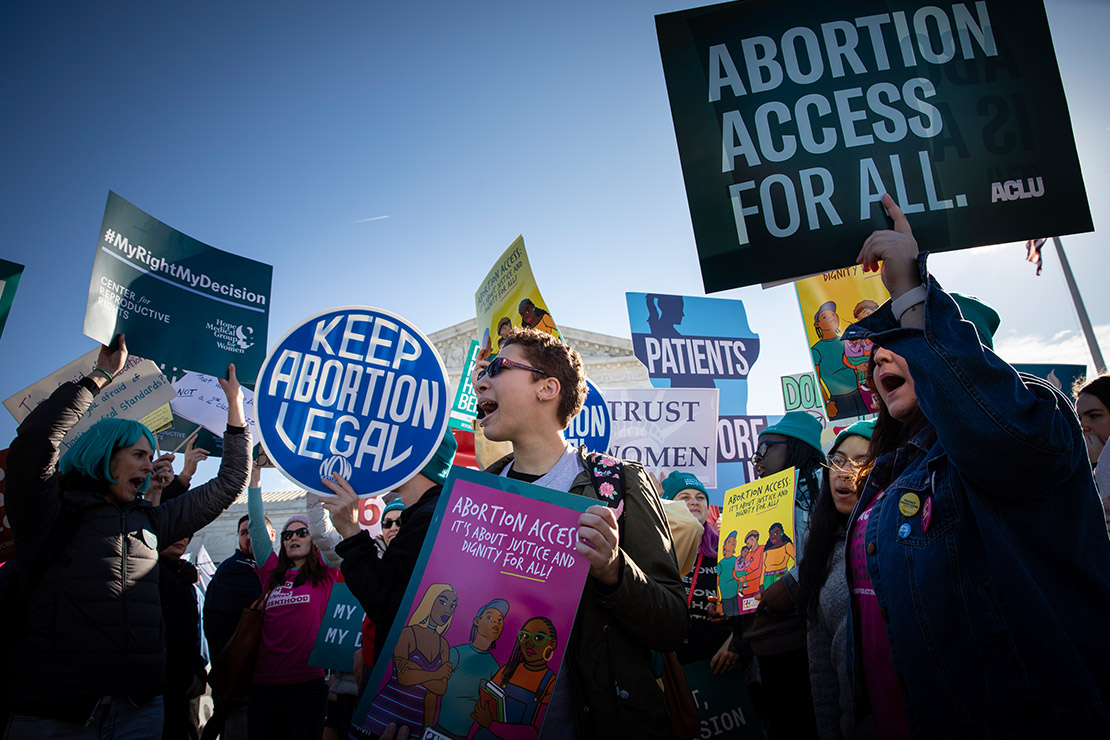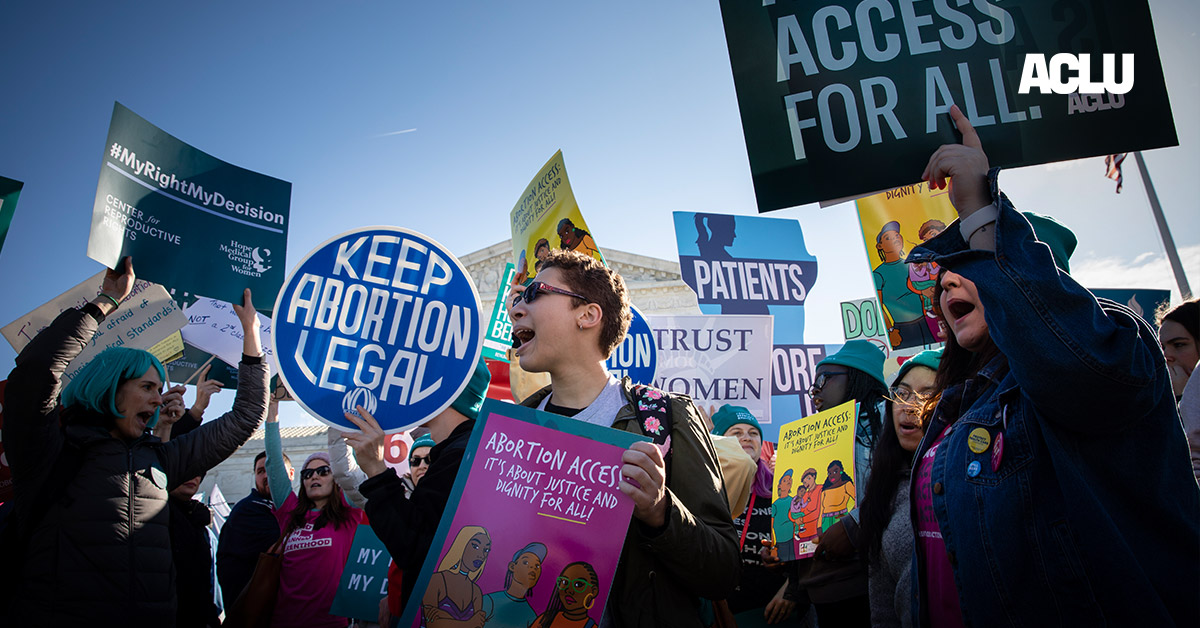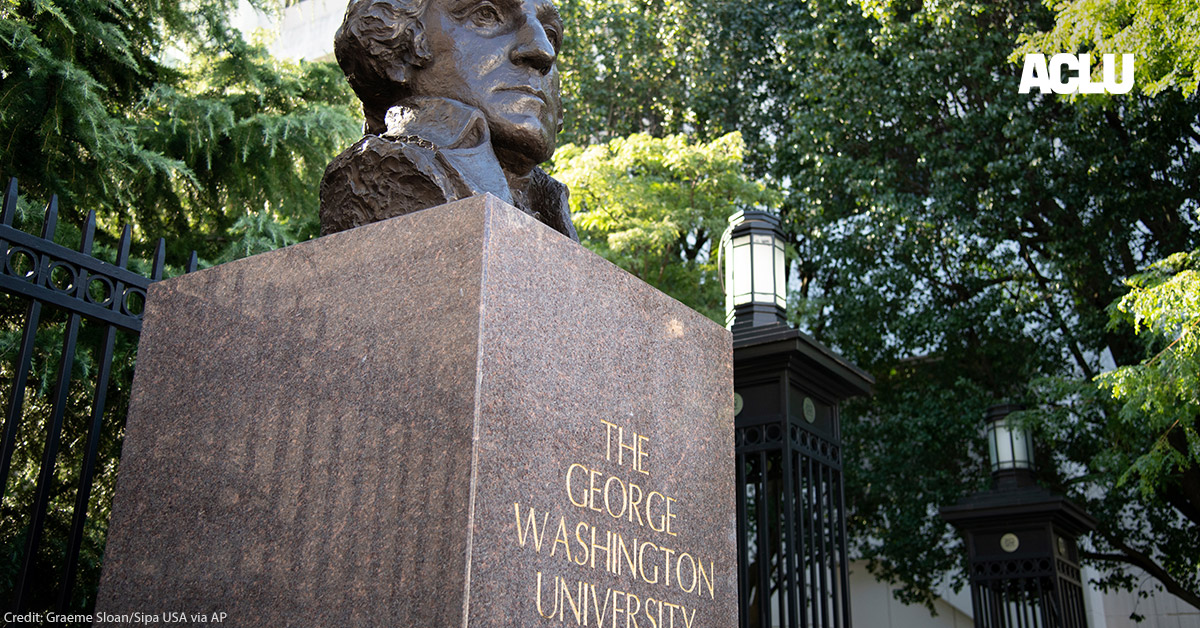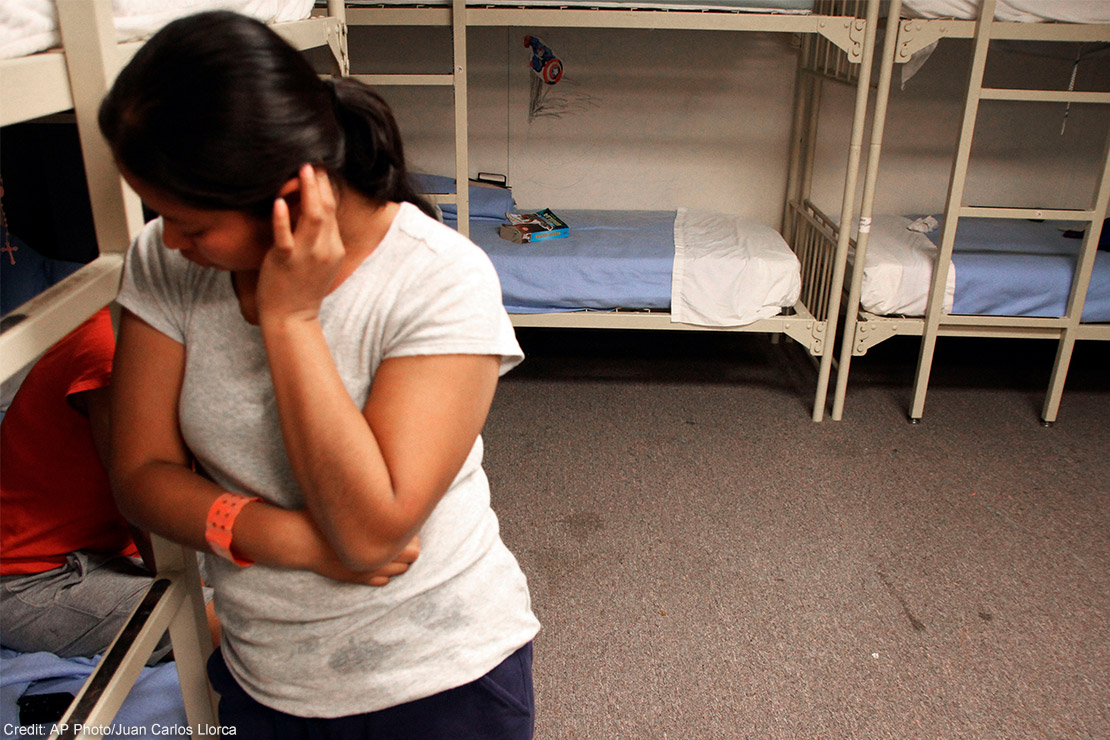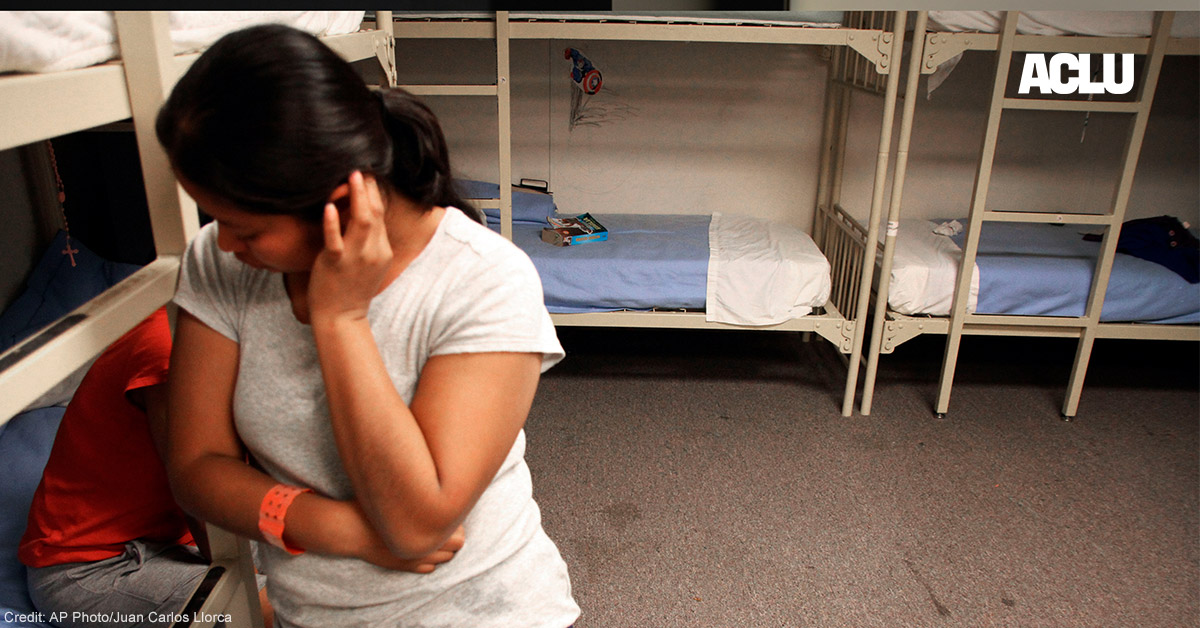As a direct result of the immense courage of our clients and three years of litigation, the Trump administration has officially abandoned its policy of preventing young immigrants in its custody from accessing abortion care. Yesterday, the administration adopted a new policy that prohibits Office of Refugee Resettlement (ORR) staff and staff employed by any ORR-funded shelter from blocking or interfering with unaccompanied pregnant minors’ access to abortion. ORR’s adoption of this new policy was a condition of our agreement to dismiss our case, which we have done today.
It was three years ago that our heroic client Jane Doe — who at the time was 17 and was seeking refuge in the United States on her own — took on the Trump administration. In September 2017, we learned that ORR was trying to stop Ms. Doe from having an abortion through her fierce guardian ad litem, Rochelle Garza, and Texas-based Jane’s Due Process.
Pursuant to the orders of then-ORR Director Scott Lloyd, Ms. Doe was effectively held hostage in the shelter where she was residing for over a month. The federal government prevented her from leaving the shelter to attend any abortion-related appointments; forced her to undergo a medically unnecessary ultrasound and to receive religious “counseling” from an anti-abortion crisis pregnancy center, where they also prayed over her; and she was kept under intensive surveillance. Lloyd also instructed staffers to inform Jane Doe’s parents of her pregnancy and abortion request against Ms. Doe’s express wishes, and despite the fact that she had already obtained a court order permitting her to proceed with her abortion without involving her parents.
We rushed into court on behalf of Ms. Doe, and after weeks of court battles, obtained a court order allowing her to access abortion. Since then, we have fought alongside Ms. Doe and on behalf of our other plaintiffs, Jane Poe, Jane Roe and Jane Moe, who were also subjected to ORR’s coercive, anti-abortion tactics, to stop the federal government from commandeering the reproductive decisions of all young immigrants in its custody. Today, we are able to proudly declare that justice has finally been served.
Our success is especially meaningful for Ms. Doe, who fearlessly represented hundreds of others to ensure that what happened to her would never happen to anyone else. In response to our victory, she said, “I am happy to know that my fight means that other young women like me will be able to make the decision about whether to become a parent for themselves.”
We are certainly taking a moment to celebrate, but the fight for Ms. Doe’s vision of “reproductive freedom for all” is far from over — including for others currently in immigration detention. Indeed, the recent allegations from the Irwin County Detention Center that a government-contracted doctor performed unwarranted gynecological procedures on women in ICE detention are very disturbing, especially in light of our country’s long history of forcibly sterilizing Black and Brown people. These reports follow
years of reproductive abuse by this administration of those in immigration detention.
In states across the country, the right to reproductive freedom is also in peril. Anti-abortion politicians have not slowed down, even during a global pandemic. Many states tried to weaponize the COVID-19 crisis to prohibit abortion under the guise of protecting public health, a terrifying preview of what would happen if Roe v. Wade were overturned. And with the devastating passing of Justice Ruth Bader Ginsburg, the balance of the Supreme Court could soon be shifted against the constitutional right to abortion. In light of President Trump’s vow to only appoint justices that would overturn Roe v. Wade, it is no exaggeration to say that the future of legal abortion is at stake.
So, we celebrate with one eye on the Supreme Court, and the other on the road ahead. We’ll continue to fight for access to reproductive health care for people in federal custody and beyond to ensure that the Jane Doe’s victory does not become hollow and her vision for the future is realized: that all people are able to access reproductive health care, including abortion, without obstacles, shame, or stigma.
Brigitte Amiri, Deputy Director, ACLU Reproductive Freedom Project,
& Meagan Burrows, Staff Attorney, ACLU Reproductive Freedom Project
Date
Wednesday, September 30, 2020 - 11:30amFeatured image
